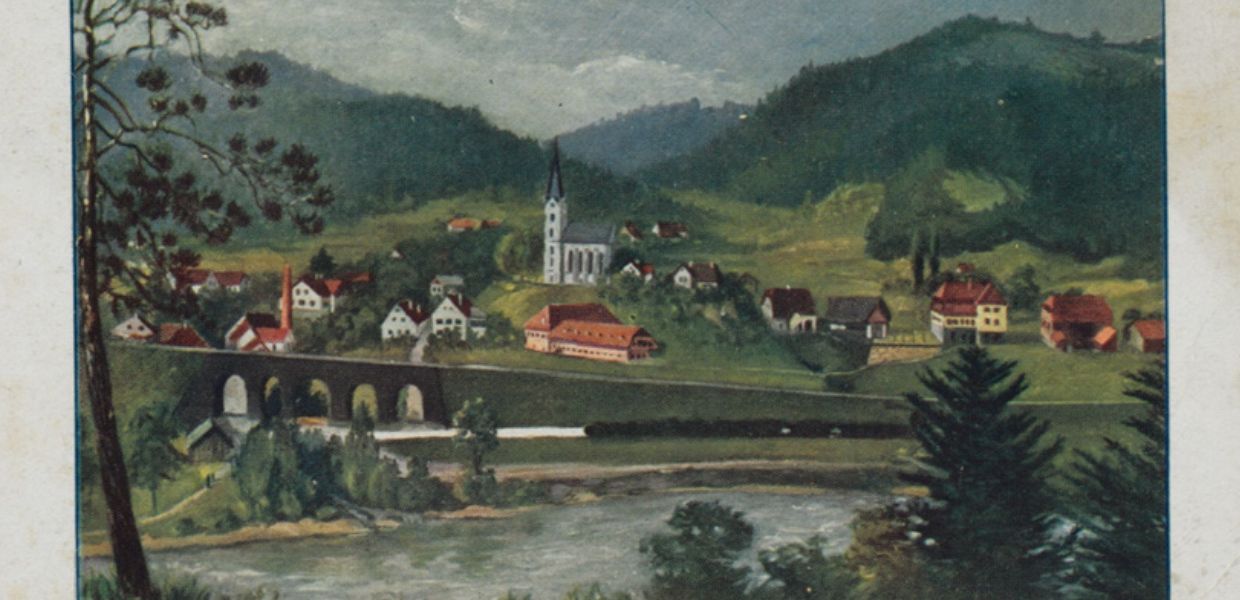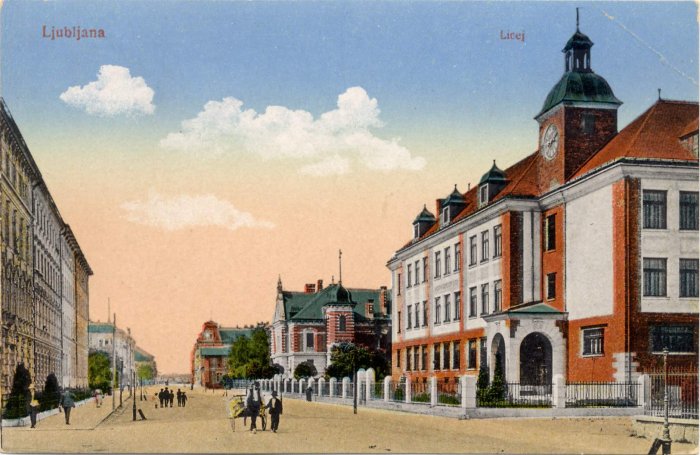Three days in The Hague - three data problems solved
In 2009, the National and University Library of Slovenia became the national cultural heritage aggregator for Slovenia. In April 2018, two representatives - Matjaž Kragelj and Mitja Kovačič - visited the Europeana Foundation to discuss all things data. They tell us how their visit went.

- Title:
- Vuhred
- Date:
- 1923-1925
- Institution:
- National and University Library of Slovenia
- Country:
- Slovenia
- Copyright:
- Public Domain
Awareness of the importance of digitising cultural heritage in Slovenia is low. In particular, there is a lack of awareness of how important it is to keep digital archives in good shape. As a national aggregator, it’s part of our role to try to change that. And that means we need to be really good at it ourselves. So we visited Henning Scholz (Partner & Operations Manager) and his colleagues at Europeana HQ to get some help.
We wanted to hear from Europeana about the data management processes, tools and services, and understand their various complexities. At the same time, we wanted to present our own position - how we prepare and export metadata and convert it to EDM, which we believe allows for rich information to be made available.

Ljubljana (Licej). National and University Library of Slovenia. Public Domain.
Problem one: Motivating our partners
As I mentioned before, there is a lack of enthusiasm in Slovenia for sharing digitised content. To help combat this, we’re welcoming a new team member to disseminate information about the aggregator as a service, and to inform potential partners about the importance and possibilities of providing their own data through Europeana to the public.
Thanks to the ever-energetic Nienke van Schaverbeke (Head of Europeana Collections), we now also have a useful tool - a Campaign Planning Template - to help us motivate our partners and institutions to work with us to provide data. We’re also organising a meeting with Europeana and our partners to highlight the benefits of publishing in Europeana Collections.
Whenever I think about this subject, I always remember the Europeana Publishing Framework slogan, ‘The more you give, the more you get’, and I could not agree more.
Problem two: Untangling our digital collections
We have made between 250,000-300,000 objects available on Europeana Collections through a variety of routes and under a variety of names - e.g. National and University Library, National Library of Slovenia, National e-content Aggregator of Slovenia. For some collections, the name of the provider was written in Slovene - Narodna in univerzitetna knjižnica, Digitalna knjižnica Slovenije. We have even submitted the material through different projects (E-Travel, Europeana Newspapers, The European Library).
The result? Confusion.
Our aim was to remove all of our objects and prepare materials in Europeana’s standard EDM format. But getting a definitive list of what we’d contributed was looking impossible. Until Henning called Hugo Manguinhas (Product Owner API) who arrived with a USB stick with all the information we needed - all the collection items and relevant metadata in a .csv file. We created a database, and with some simple SQL querying, we got exactly what we wanted. So now we can get on with preparing new exports for our old data.
Problem three: Data processing
Adina took us through the ingestion process step by step, using one of our collections as an example - from harvesting from the aggregator, through all the processes in the Mint tool, to the output - the preview portal for Europeana. The procedure is really long, tedious and somehow stressful. But then, Valentine Charles (Product Owner of Metis) presented the new Metis tool, which seems much more intuitive, faster and with fewer steps. It seems that this tool will finally make it easier for those who deal with us and our metadata.
We would like to thank Henning and colleagues for their hospitality and professionalism and for solving every problem we brought up. Of course, we did not point out all of the issues – some have to wait until next time. And we do hope there will be a next time. In the meantime, we’ll continue improving our data, as well as contributing to the Rise of Literacy project.
